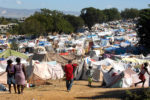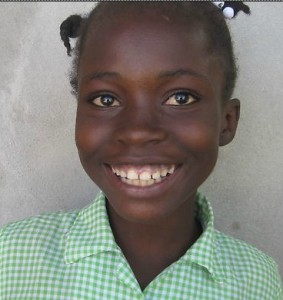Haiti: A Case Study of the Interconnectivity of Justice


photo by Christian AlsEncountering the interconnectivity of human trafficking, poverty and the environment can help us see where we might join the Father in pursuing the Justice of the Kingdom. Experts in migration crises from countries like Haiti to the U.S. typically look at “triggers” (i.e. natural disasters – such as hurricanes – and civil unrest) that cause people to make difficult choices to leave. Yet things like natural disasters and civil unrest are only factors because there are other issues positioning people in desperate situations to which an occurrence such as a natural disaster or civil unrest is the final factor to their leaving their home for something, anything else.

These desperate situations include issues like health and immense poverty. The fact is, most victims of human trafficking are all ready living with the consequences of the environmental and economic crisis when lured into that life. Take Haiti as an example. With little or no economic hope for even subsistence farming due to de-forestation and soil erosion (those are inter-related, especially in a place like Haiti), farming communities cannot eek out a living. Compounding the environmental degradation is the loss of generational-knowledge of good farming techniques due to the decimation of HIV/AIDS or the push of “advanced agricultural techniques” wanted or unwanted on the farming communities from “advanced countries.”
These factors contribute to increased poverty as people leave the countryside – the place of their relational community core, family and support – for the overpopulated urban environs. Poverty – both urban and rural – and the risk of disease place people in desperate situations, even to the point of believing (whether they really believe it in their heart) that their children are better off having a chance elsewhere. They are more susceptible to being blinded by the lies and false promises of a better life, a way out of their present life, for themselves or their children.
 This vulnerable situation is preyed upon by human traffickers, and desperate people sell themselves or their children who may starve tomorrow into labor trafficking slavery (they call them restavek’s in Haiti) and as indentured servants of the urban and suburban wealthy, where eventually they might become a sex slave or be sold into sexual slavery and/or more labour trafficking slavery and brought into the U.S. or other wealthy nations.
This vulnerable situation is preyed upon by human traffickers, and desperate people sell themselves or their children who may starve tomorrow into labor trafficking slavery (they call them restavek’s in Haiti) and as indentured servants of the urban and suburban wealthy, where eventually they might become a sex slave or be sold into sexual slavery and/or more labour trafficking slavery and brought into the U.S. or other wealthy nations.
We must realize the market-aspect of this activity of injustice. It is the wealthy nations like the U.S. who are the major destination-countries of human trafficking, including Europe or Japan. Human traffickers are bringing their commodities to the marketplace. Justice is being trampled in our streets.

Can you see the dots connecting: human trafficking fostered by the situation of extreme poverty, in turn, rooted in an environmental crisis. This is where we can join the Father along these fault-lines of injustice, to be people of His Presence, to bring hope and healing and redemption and rescue to the lost and the least. The Church has to fight against this and be the place where the broken walk toward healing in community in Christ. The issues of biblical justice are social, economic and environmental. They are also intertwined and interconnected.
